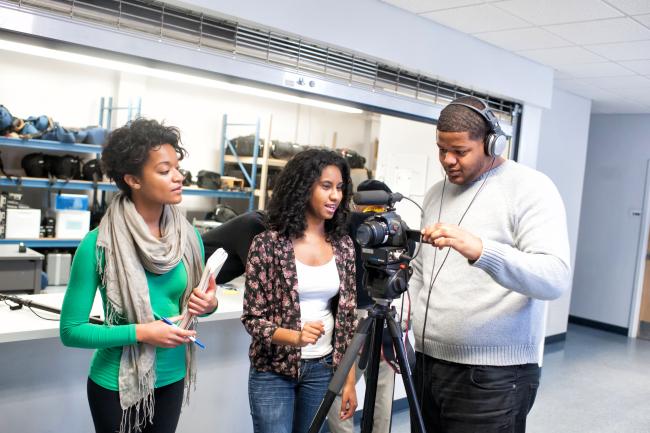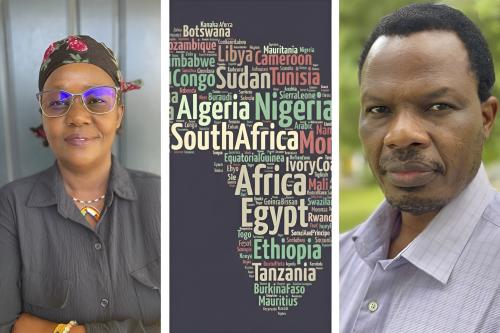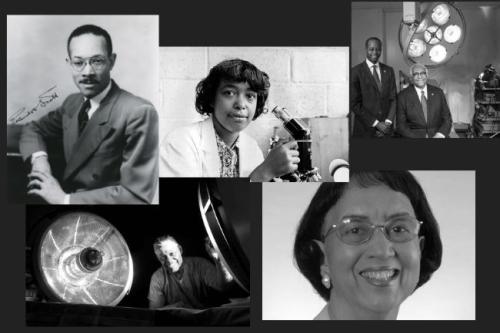As democracy is being tested heavily in the United States, so has the credibility of the media in general. In response, Howard University is launching the Center for Journalism & Democracy to train and prepare a new generation of investigative journalists to confront this test.
Led by Pulitzer Prize-winning journalist, author, and professor at the Cathy Hughes School of Communications, Nikole Hannah-Jones, the center will serve to help students hone their investigative reporting skills and learn to do historically informed journalism in service of democracy and equality. With the center, Howard will be one of few journalism programs nationwide to offer courses with an investigative focus, Hannah-Jones says.
“We intend to create and to fund investigate reporting courses, create visiting professorships and bolster the student newspapers at [historically Black colleges and universities (HBCUs) that have] large journalism programs,” Hannah-Jones says, adding that the center will also fund technology upgrades for campus newspapers, faculty stipends, and student financial support. Through a partnership with the Moorland-Spingarn Research Center, the Center for Journalism & Democracy will also help make a thousands of publications in the Black Press Archives available in a digital repository for worldwide research, made possible in part by a $2 million grant from the Jonathan Logan Family Foundation. The Center for Journalism & Democracy and the MSRC are currently fundraising to match the Logan Family Foundation grant.
We are at a critical juncture in our democracy, and yet our press does not reflect the nation it serves and too often struggles to grasp the danger for our country as we see growing attacks on free speech and the fundamental right to vote.”
Hannah-Jones is co-founder of the Ida B. Wells Society for Investigative Journalism, a news trade organization focused on increasing “the ranks, retention and profile of reporters and editors of color in the field of investigative reporting.” The idea for the Center for Journalism & Democracy came about with a similar mission. Investigative reporting is the type of journalism that holds powerful accountable, and yet as our democracy is in danger, few of the journalists providing the check on power are journalists of color even as the people of color are amongst the most vulnerable to anti-democratic policies and structural inequality.
“We are at a critical juncture in our democracy, and yet our press does not reflect the nation it serves and too often struggles to grasp the danger for our country as we see growing attacks on free speech and the fundamental right to vote,” Hannah-Jones says.
There remains a need for broader representation among investigative reporters, says Hannah-Jones. The Center for Journalism & Democracy not only aims to bring more Black investigative journalists to the industry but ones who are well-trained to ask difficult questions, expose abuses of power, examine and analyze data, and produce journalism that understands the historical architecture of our society. Hannah-Jones notes how the Black press has always provided a model for journalism in service of democracy, as it has always been the one to push back and ask critical questions.
“In the storied tradition of the Black press, the Center for Journalism & Democracy will help produce journalists capable of accurately and urgently covering the challenges of our democracy with a clarity, skepticism, rigor, and historical dexterity that is too often missing from today’s journalism,” Hannah-Jones explains. The center also plans to work with other HBCUs that offer journalism degrees and concentrations to create a pipeline of trained journalists into the field.
While students may research any number of topics centered around historically-informed journalism, Hannah-Jones plans to create a cohort of investigative journalism students among the group of HBCUs to research and collect data that would make a case for reparations to African Americans whose families descended from slavery. Each university would tackle a different part of American life, including economics, housing, and education. She also wants to bolster student newspapers through paid positions, and create a strong mentoring program as well.
“I believe that this center – with its budget and with its placement at Howard University – and ability to serve a network of HBCUs really has potential to be transformative,” Hannah-Jones says. “It’s going to be one of the best funded journalism centers, not just among HBCUs but in the whole nation. We look forward to being collaborative with our sister programs at [predominantly white institutions] and other HBCUs in order to bring an unprecedented level of resources to investigative reporting and have a lasting impact on our profession.”





